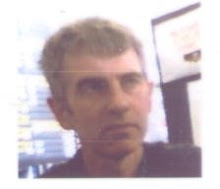
Manager Garry Bryson of the Cyrenians were in attendance to make a slide presentation on the ACE Project there were twelve pilots across England, each with different approaches. Head of Strategic Housing, Regeneration Directorate wish to submit on a new initiative (ACE) to address the needs of Adults Facing Chronic Exclusion and providing a progress report on the current trends and management of homelessness in Newcastle upon Tyne. The ACE team won the Housing Heroes Support Team of the Year Award.
Last year, the Tyneside Cyrenians marked its 40th anniversary with a number of celebratory events and was named UK charity of the year. The Cyrenians were in the list of best companies to work for in 2010. Based on the feedback from staff, the review has shown effective communication between staff, the organization and throughout the structure of the management.

The head of strategic housing of the regeneration directorate want to submit a new initiative to address the needs of adults facing chronic exclusion and providing a progress report on the current trends and management of homelessness in Newcastle upon Tyne. The ACE team won the Housing Heroes Support Team of the Year Award.
Now homeless adults who have problems like low self-esteem, depression, alcoholism or drug dependency, have the chance to take part in creative activities with professional artistes.
A new project, Creative Progression has invited the homeless to meet workers from the theatres of the North East to learn acting, drama activities, training and other opportunities accessible in Newcastle upon Tyne. The project has been organised by the Tyneside Cyrenians in conjunction with Newcastle City Council, Crisis, Helix Arts and the Arts Council of Great Britain.
With the support of the John Lewis Partnership, the Cyrenians opened their first charity shop in March 2010. Income from the sales will cover operating costs with any profit going towards the work of the charity.
The UK's first coalition government vow to reduce the country's deficit as quickly as possible over the next five years will have an impact on the Cyrenian's work.
The Ron Eager house operates at the sharp end, providing 'drop' support for the homeless close to Newcastle city centre. A range of home comforts, often taken for granted, such as food, warmth, clothing, washing facilities and companionship are available. And it operates an 'open door' policy where anyone over the age of 16 can access the centre.
The Drug Interventions Programme (DIP) works to reduce the damage done to communities as a result of drug -related crime and anti-social behaviour by getting users into treatment and keeping them there.
By Victor Yanulevich



